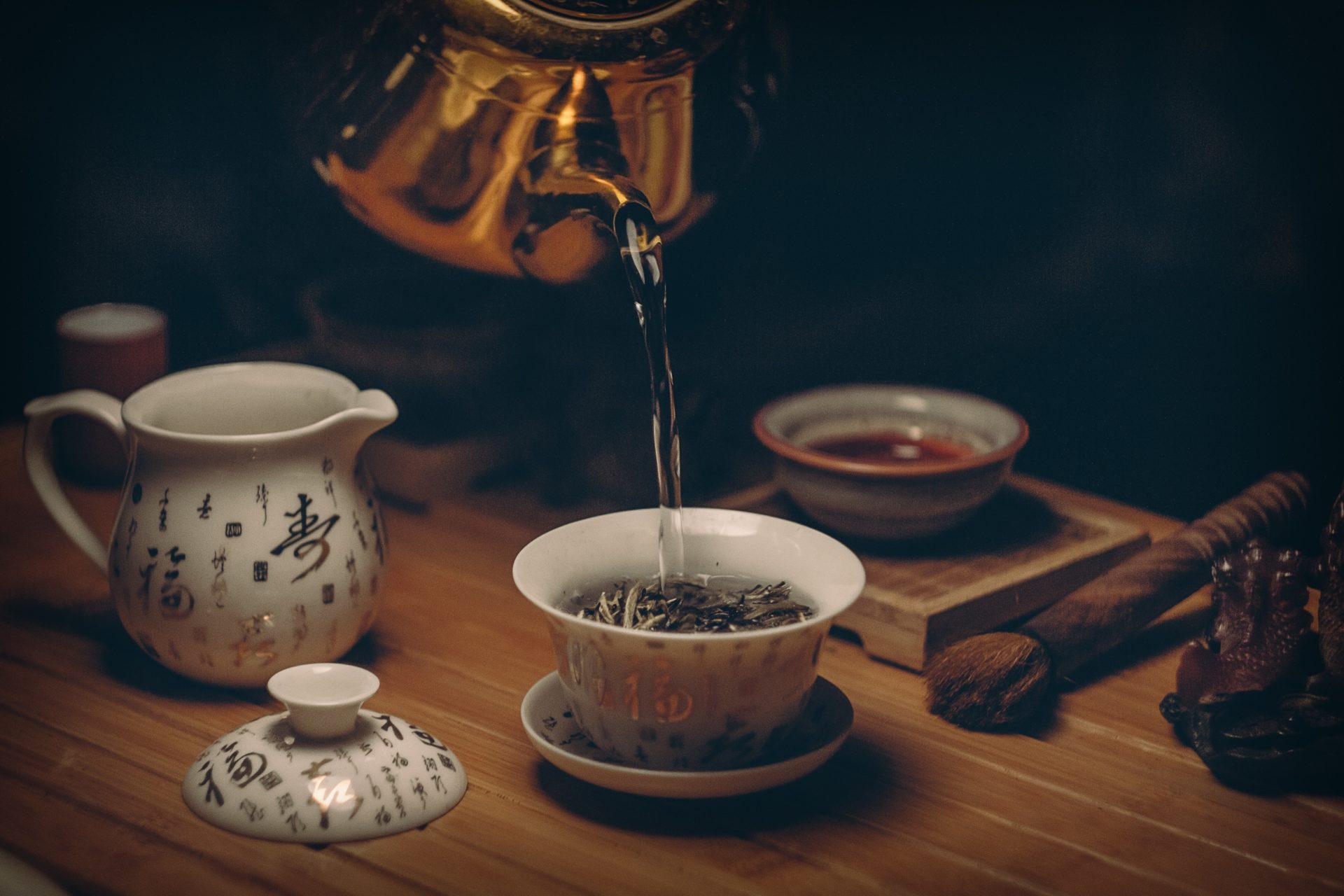
Sip Up: The Best Teas For Your Health
We drink tea to calm the nerves or to soothe the throat. We even drink cold-brewed teas to refresh ourselves on warm summer days. But there’s so much more to tea than coating our throats and staying hydrated.
While most teas provide the common benefit of nourishment, some slight nuances between them aim to provide certain types of relief.
For your overall health and most especially for female’s health, here are some of the best teas to sip.
Green Tea
Green tea has a bittersweet flavor and has been used in Chinese Medicine for quite some time, originating from the reign of Emperor Shennong. Derived from the Camellia sinensis leaves and buds. It is one of the best teas you can drink, and for many reasons:
- Antioxidants — Antioxidants are great for ridding free radicals and improving our cell regeneration. More significantly, green tea antioxidants can ward off cancer by protecting cells in the first place. This is especially true for women’s cancer risks and colorectal cancer.
- Caffeine — While it’s not as strong as coffee, there is still caffeine in green tea, which has both benefits and side effects. Benefits of caffeine are that it releases dopamine and serotonin hormones that put us in a happy mood.
Possible Side Effects
Some negative caffeine-related effects do occur, so it’s important to be aware. which can cause anxiety, disturb sleep patterns, and prevent your body from absorbing zinc, an important mineral! If caffeine affects you, there are many alternatives.
Hibiscus
Hibiscus tea is floral tea made of the bright red flower that offers a tart cranberry-like flavor. Due to the tartness, many find it a bit harsh and tend to add honey or a natural sweetener. But a warm cup of hibiscus is great for soothing a sore throat. Here are a few more benefits of this wonderful tea:
- Anthocyanins compounds — Due to the tea’s anthocyanins compounds that lend that red color (same as found in berries) hibiscus tea is excellent for lowering your body temperature and generally treating heart disease, blood pressure, and high cholesterol.
- Antioxidants — Similar to green tea, hibiscus offers antioxidants through phenolic compounds and flavonoids that eliminate free radicals, prevent tumor growth, and slow down the aging process.
Possible Side Effects
As with most teas that assist blood pressure, hibiscus should be taken with caution if you use blood-thinning medications.
Red Clover
Believe it or not, red clover is a member of the legume family. (That’s right, as in peas and beans.) As it happens, their roots are excellent at sucking up tons the nitrogen from the air.
They contain calcium, chromium, magnesium, niacin, phosphorus, potassium, thiamine, and vitamin C. But more importantly, they’re chock full of isoflavones.
What are isoflavones? In short, isoflavones are chemicals within the plant that are similar to estrogen.
Red clover still needs more studies, but it may help the following conditions:
- Respiratory — It’s been known to relieve asthma, whooping cough, and bronchitis.
- Skin conditions — Red clover may offer relief when applied to skin conditions such as eczema and psoriasis, as well as skin cancer. It may also help skin sores and burns.
- Inflammation — It may also help relieve the inflammation associated with rheumatoid arthritis.
Possible Side Effects
Because red clover has blood-thinning capabilities, it can cause negative reactions with certain anticoagulant and antiplatelet medications.
Using red clover for extended periods, such as a dietary supplement, is not advised. Because isoflavones are hormone-like, it can cause issues with reproductive health, as is seen in certain animals, and increase uterine cancers. Also due to its isoflavones, it has been known to interact with birth control pills.
Nettle
Nettle tea has been known to improve urinary tract health and infections (UTIs). High in polyphenol chemicals, this tea can also prevent more serious and chronic diseases such as diabetes, where it maintains blood sugar levels and reduces the inflammation of arthritic conditions.
Two recent studies concluded that nettle extract might help treat breast cancer and prostate cancer. Not to mention, like most of these teas, nettle holds strong antioxidants, which protect against cell damage.
- Urinary Health — Nettle assists to flush out harmful bacteria. It’s especially helpful for those with urinary conditions such as benign prostatic hyperplasia (BPH), which causes men’s prostate gland to become enlarged, causing pain.
- Inflammation and Arthritis — According to the Arthritis Foundation, nettle tea may also reduce inflammation and pain that comes along with osteoarthritis.
- Blood Sugar — Nettle can also help maintain our blood glucose levels and has even shown it can boost insulin production.
Possible Side Effects
But because nettle tea is an allergen to some people, start out with drinking a single cup to ensure there are no reactions.
Raspberry Leaf
Raspberry leaf tea is another tea that is especially good for women’s health. And on top of that—women’s reproductive health! Easily digestible, it has a mild, sweet flavor and is packed with vitamins A, B1, B2, B3, C, and E and minerals like calcium, potassium, magnesium, iron, niacin, and selenium,
- Relieves cramps — Experience bad cramps? Raspberry tea is perfect for menstrual cramps, as the leaves contain an alkaloid called fragrine that relaxes and tones the uterus and pelvic muscles. This fragrine also helps to regulate the bleeding itself.
- Tones the Uterus — And because this tea tones the uterus—you guessed it!—it’s perfect for pregnancies too, and is often recommended during the second trimester through to shorten a mom’s labor.
Possible Side Effects
The one thing to be aware of with raspberry tea is that it is an astringent, which means it could affect your breast milk production.
Dandelion
Oh, dandelion. You get such a bad rap as a weed. But we have to agree with Ralph Waldo Emerson when he wrote:
“What is a weed? A plant whose virtues have not yet been discovered.”
But they have been discovered and they do, in fact, have many virtues:
- Vitamins and Minerals — From root to petal, dandelions contain Vitamin C and Vitamin D, as well as minerals such as magnesium, zinc, and potassium.
- Antioxidants — Dandelion roots, in particular, are full of antioxidants, which eliminate free radicals to prevent premature aging as well as dangerous cancer cell growth.
- Bone Health — This tea’s antioxidants also detoxify the liver, which restores our bones and even reduces inflammation.
- Protein supplement — The leaves even provide more protein than spinach. And in Chinese medicine, dandelions have been used to promote lactation.
Possible Side Effects
It’s worth noting, however, that dandelion tea contains coumarins, which is a blood thinner. In short—avoid dandelion tea if you take anti-coagulant drugs.
Also, because dandelion is technically a ragweed, those of you ragweed allergies should be wary of allergic reactions such as hives, difficulty breathing, or any type of swelling.
A Note About Using Teas
It’s important to be choosy when you select your tea. Reach for high-quality, organic teas to keep fluoride consumption to a minimum.
Additionally, reach out to Naturna for more comprehensive nutritional counseling.
Resources
https://www.ncbi.nlm.nih.gov/pubmed/25945622
https://www.ncbi.nlm.nih.gov/pubmed/25875025


